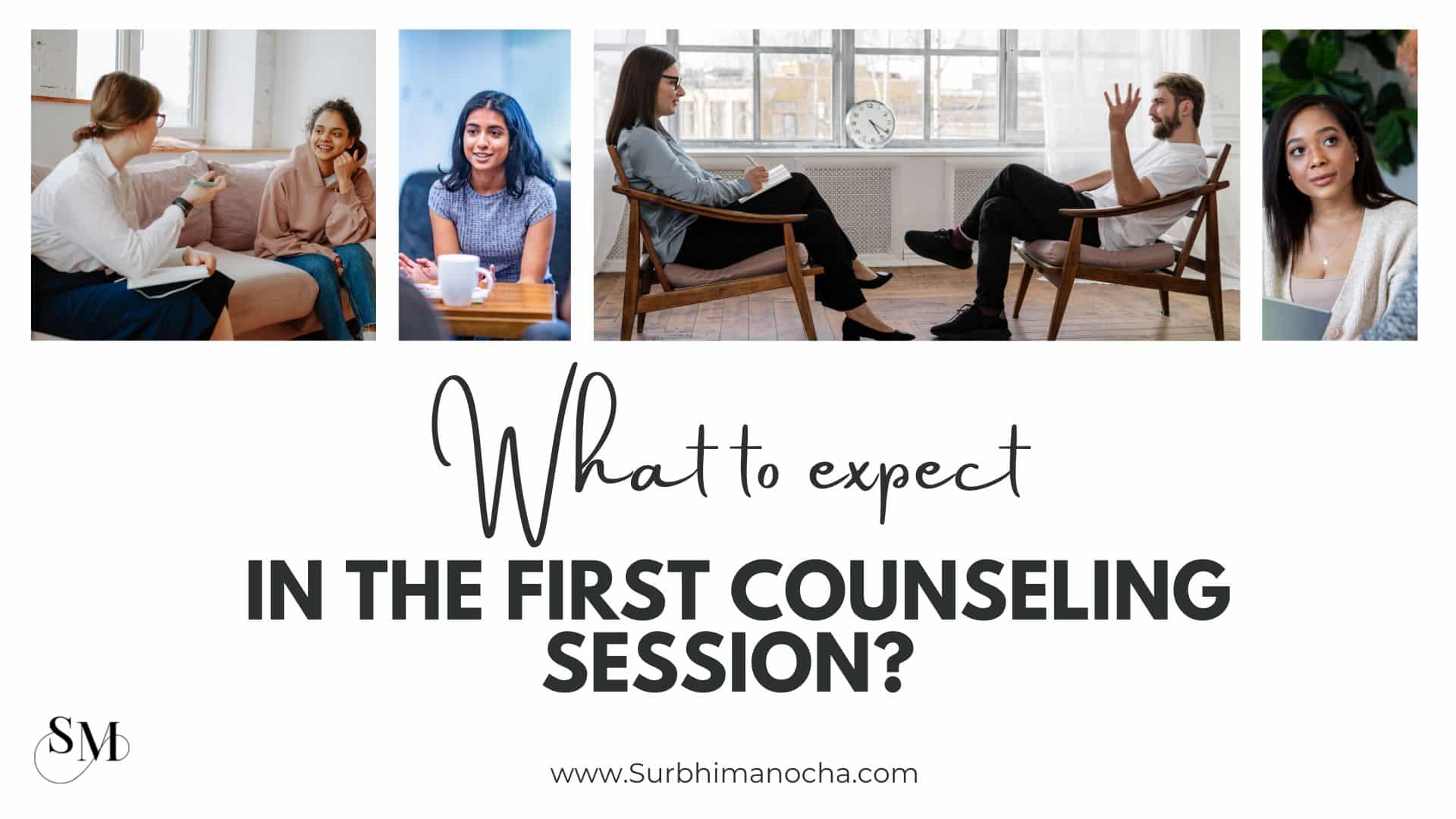Home » What to expect in the first counseling session?
What to expect in the first counseling session?

Heading to your first counseling session? Feeling nervous? It’s completely normal to feel nerve-wracking when starting counseling. You’re not alone. I’m here to walk you through what this initial visit is all about.
This blog breaks down everything you need to know about what a first counseling session entails. You’ll learn about the process, what to expect, and how to get the most out of that critical first appointment. Whether you’re hoping to improve relationships, manage anxiety, boost self-esteem or process trauma, counseling can help. Starting this journey is a big step. By understanding exactly what the intake session involves, you can feel informed, comfortable, and ready to make the most of this opportunity for growth and healing. Let’s get started! Here’s your guide to nailing that first counseling visit:
First and foremost, counseling aims to provide a safe, confidential space for you to discuss your challenges and work towards personal goals. The counselor’s office should feel welcoming and judgment-free. After greeting you, the counselor will explain the process and format of counseling sessions. Feel free to ask any logistical questions on your mind about scheduling, fees, or confidentiality. There are no silly questions when it comes to getting comfortable!
Next, the counselor will encourage you to open up about your reasons for seeking support. What difficulties or stressors prompted you to pursue counseling at this time? This is your opportunity to give an overview of your current situation. The counselor will listen attentively to understand the issues you’re grappled with.
Don’t feel like you have to download your entire life story at once. The initial session is just meant to give the counselor context about factors contributing to your emotional state. Over time, deeper exploration occurs.
In addition to learning about your challenges, the counselor will also want to understand what you hope to gain from counseling. What are your goals? Examples may include improving a relationship, managing anxiety, boosting self-esteem, or processing grief.
Being clear on your objectives allows the counselor to tailor their approach. They can then help you define strategies to achieve your goals.
This first meeting often involves an assessment component. The counselor evaluates your overall situation, needs, and state of mind. This helps determine if you could benefit from counseling and which treatment methods may serve you best. The counselor may ask about your mental health history, important relationships, recent major life events, strengths, and current coping abilities. Answer honestly so they gain an accurate picture.
The counselor will also consider whether their therapeutic style suits your needs. Different counselors have different backgrounds, skills, and approaches. During this initial session, you’ll get a feel for their behavior, values, and methods. If you don’t feel fully comfortable with a counselor after the first meeting, it’s okay to request referrals and explore other options. Finding the right counselor match is the key.
Also read : 5 simple ways to practise Self-Care
Towards the end of the intake session, you and the counselor will discuss what to expect moving forward. They’ll explain how often you’ll meet, the specific session structure, their confidentiality policy, and emergency procedures. You’ll also agree on a treatment plan outlining goals and techniques. This plan will likely evolve as counseling progresses and your needs change.
While the first counseling session involves intake procedures, its most important purpose is starting an open, trusting connection. This therapeutic relationship empowers you to achieve your goals. Consider this the first step on an insightful journey of growth.
References
https://www.counseling.org/aca-community/learn-about-counseling/what-is-counseling
https://counseling.northwestern.edu/counseling/become-a-counselor/what-is-counseling/
https://books.google.co.in/books?id=ZqqICwAAQBAJ&pg=PA27&source=gbs_toc_r&cad=3#v=onepage&q&f=false
Expand Your Horizons:
Browse Our Other Informative Reads
Get Started Booking Your Appointment is
Just a Click Away
-
Select Location
-
Select booking
-
Select Service
-
Select Date & Time
-
Enter Information
-
Payment Method
-
Verify Order Details
-
Confirmation
